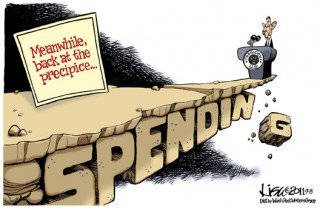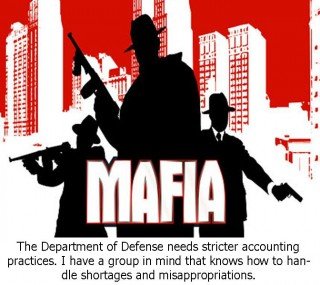by Ed Mattson
The numbers are startling. The VA estimates that 107,000veterans are homeless on any given night. Approximately twice that many will experience homelessness in the course of a year’s time. While only eight percent of the general population is actually veterans nearly twenty percent of the homeless population is made up of veterans. Roughly 56 percent of all homeless veterans are African American or Hispanic, despite only accounting for 28 percent of the U.S. population. Another 1.5 million other veterans may be at risk of homelessness due to poverty, lack of support networks, and dismal living conditions in overcrowded or substandard housing.
Experts who have studied the situation for any length of time believe the most critical intervention time is actually during the transition period when the soldier is leaving military duty, and even more so for the military personnel which faced combat. This is why there has been a concentrated effort to provide counseling upon returning from the conflict theater.
We have discussed on numerous occasions the challenges that transitioning personnel face in reintegrating to a peaceful environment when they are leaving a constant situation of daily survival and adrenaline highs. The need to connect with family and friends is an up-hill battle for many and learning to find intimacy and redevelop communication skills beyond the “normal” four-letter vocabulary so often used in the combat zone. Counseling addresses these issues and attempts to provide guidance to finding meaningful employment and/or helping to establish a path of education to a professional career.
With our country facing monumental fiscal problems it is now official: “according to the US Treasury, America has closed the books on 2011 with debt at an all time record $15,222,940,045,451.09. And, as was observed here first in all of the press, US debt to GDP is now officially over 100%, or 100.3% to be specific, a fact which the US government decided to delay exposing until the very end of the calendar year”. Budget cuts are still on the table despite the many unaccounted for billions, and the DOD and VA are juicy targets for the politicians. Will there be enough resources to cover the needs? Only time will tell. Just understanding the magnitude of the situation is almost an insurmountable task.

• Veterans reported being homeless an average of 5.7 years, compared with 3.9 years reported by non-veterans.
• Among the 12,500 people who said they had been homeless for more than two years, veterans averaged nine years, compared with 7.3 years for non-veterans.
• Of those, 3 out of 4 veterans reported a substance abuse habit, and nearly two-thirds reported a serious physical health condition.
• 55% of homeless veterans reported health conditions linked to heightened mortality risk, versus 44% of non-veterans.
• 21% of veterans surveyed were at least 60 years old, compared with 9% for non-veterans.
• Among veterans from the Iraq and Afghanistan wars, 27% reported traumatic brain injuries, compared with 19% of other veterans. The signature insurgent weapon in the wars in Iraq and Afghanistan has been roadside bombs, which typically cause traumatic brain injuries in addition to loss of limbs among service members who survive the explosions.
• 46% of Iraq and Afghanistan veterans surveyed reported receiving mental health treatment, versus 41% for other veterans.
• A federal report found that veterans under 30 were twice as likely to become homeless as non-veterans of the same age.
The Pentagon has become more attuned in recent years to the need for mental health treatment and counseling for service members returning from combat, especially for Post traumatic stress disorder (PTSD). Those leaving the military understand the stigma which accompanies ant type of mental problems and this may lead to reluctance to seek counseling upon leaving the shelter of the military base. We have to help them overcome that fear. It is what it is, and we need to address the homeless problems which often accompany PTSD with a large percentage of our veterans without becoming “enablers”, as so often occurs is many situations by compassionate people.
As PTSD is a problem few ever completely get over, the very first step in the process to minimize the homelessness with veterans is to help them live with PTSD without becoming totally dependent on drugs or the veteran relying on his/her use of alcohol and other substances. Unfortunately we have become a society that has become “pill-oriented”. We have pills to lose weight, pills that we give children with any form of abnormal behavior (we threw out spanking in the crazy Seventies), we have pills for every sickness known to man, we have pills to improve our memory, pills to keep us a wake or put us to sleep, pills to improve our libido or minimize the effects of menopause, and we even have pills to keep us from becoming depressed. We have become the most over-medicated society in the history of mankind.
The point here is to realize we will never be able to get a handle on the homeless problem if we don’t deal with the mental aspects of PTSD, and other consequences someone leaving the military must deal with during the reintegration to society and the transition period. There is no quick-fix and no one-size-fits-all pill or remedy on the horizon. In most cases the counseling and guidance is more than a “12-step plan”. It is a life-long commitment to counseling and support, and that takes vast resources and follow-up.
For those who do not make a successful transition out of the military, substance abuse and homelessness is just around the corner, and quite possibly suicide becomes the end result, but everyone must understand the only way to succeed in life is to regain self confidence, self esteem, and a modicum of self-reliance. No amount of medicine or free government handouts will replace becoming a productive member of society. We cannot coddle and we cannot allow ourselves to become “enablers” for those who simply give up. That may be a hard pill for all of us to swallow, but all we can do is provide the resources and try our damnedest to make them work for those in need.
The VA’s specialized homeless programs served more than 92,000 veterans in 2009, which is highly commendable. This still leaves well over 100,000 more veterans, however, who experience homelessness annually and must seek assistance from local government agencies and community- and faith-based service organizations. In its November 2007 “Vital Mission” report, the National Alliance to End Homelessness estimated that up to about half a million veterans have characteristics that put them in danger of homelessness. These veterans may require supportive services outside the scope of most VA homeless programs.
According to the Veterans Administration, “Since 1987, VA’s programs for homeless veterans have emphasized collaboration with such community service providers to help expand services to more veterans in crisis. These partnerships are credited with reducing the number of homeless veterans by more than half over the past six years. More information about VA homeless programs and initiatives can be found here“.
With constant vigilance for those receiving counseling we must insure that our veterans work toward becoming productive members of society and have access to the necessities of life like shelter, food, clothing, and healthcare. Those who are still in a family unit may qualify for local social services but not to the point of total dependency like has so often happened in this country where we have built-in a permanent welfare class. Faith-based groups probably have the best record in this type care, and today many communities have local health clinics to care for the family while the veteran has the VA system. It isn’t perfect, but the best option available.
For the single veteran the challenge may be greater and need even more help because the feeling of isolation and despair are a constant threat without family support. In the past many of the liberal elite wanted to show just how much they care for those living on the street. You’ve seen the news and read the stories about the wealthy going downtown to spend a night on the street with the homeless to show how much they care, or the drives that would furnish the homeless with newer shopping carts (stolen from those uncaring and overcharging supermarkets). This is exactly what isn’t needed. It just perpetuates the problem. What is needed is a coordinated effort that provides secure housing, nutritional meals, basic physical health care, substance abuse care and aftercare, mental health counseling, personal development and empowerment. Additionally and most importantly, veterans need job skills assessment, training and placement assistance, while never losing focus of counseling and guidance.
It has been estimated that we will have an additional 900,000 military graduating to the ranks of being veterans this year and eligible for veteran’s benefits. My suggestion is that we the people hold our elected officials liable for proper accounting principles to locate and account for the estimated lost $2,300,000,000,000.00 ($2.3 TRILLION) the Department of Defense cannot find or mis-spent without proper records.
Folks, this is criminal behavior, and if we were talking about the Mafia, we would have our own ways of dealing with such ineptness. For the novice, that $2.3 Trillion is $8,000 for every man, woman and child in America. Time to get a rope!

Following his service in the Marine Corps Ed Mattson built a diverse career in business in both sales/marketing and management. He is a medical research specialist and published author. His latest book is Down on Main Street: Searching for American Exceptionalism
Ed is currently Development Director of the National Guard Bureau of International Affairs-State Partnership Program, Fundraising Coordinator for the Warrior2Citizen Project, and Managing Partner of Center-Point Consultants in North Carolina.
Mr. Mattson is a noted speaker and has addressed more than 3000 audiences in 42 states and 5 foreign countries. He has been awarded the Order of the Sword by American Cancer Society, is a Rotarian Paul Harris Fellow and appeared on more than 15 radio and television talk-shows.
ATTENTION READERS
We See The World From All Sides and Want YOU To Be Fully InformedIn fact, intentional disinformation is a disgraceful scourge in media today. So to assuage any possible errant incorrect information posted herein, we strongly encourage you to seek corroboration from other non-VT sources before forming an educated opinion.
About VT - Policies & Disclosures - Comment Policy




